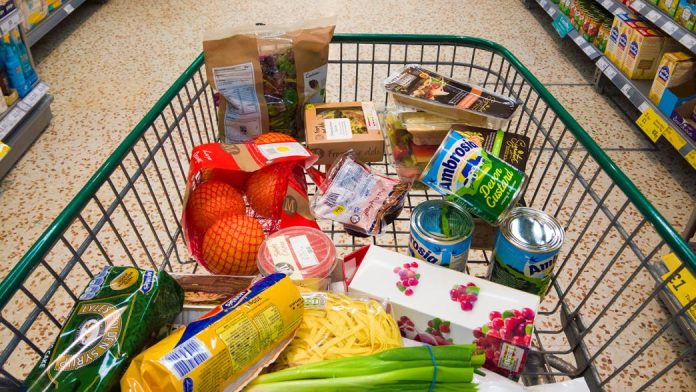The cost of living crisis has had a broad impact – with three-quarters of all adults cutting back on spending since December.
The report out today by the Resolution Foundation found that energy use and food shopping were the two most popular areas of spending to cut back with more than half of adults doing so.
Their report also found that 1-in-6 poorer adults had to regularly skip meals or eat less due to financial pressures in the past month. Our survey found significantly higher levels of food insecurity compared to before the crisis
The middle-aged (aged 35-44) were the most likely to turn to formal lending – such as credit cards, overdrafts or other formal loans – to make ends meet over the winter.
Over one-in-three have done this, significantly more than the population as a whole.
Young people (aged 18-24) and low-income families, on the other hand, were most likely to have coped with rising cost pressures by simply not paying at all: around one-in-five adults in the bottom income quintile and those aged 18-24 reported falling behind on at least one bill in the past three months.
Young people have also tended to look for help from their family and friends for help: one-in-four 25-34-year-olds received financial help from these sources in the past year, compared to just 2 per cent among those aged 65 and above.
The ‘bank of mum and dad’ played a critical role in supporting young people throughout the past year: 10.8 million 18-34-year-olds said they had received financial help from their parents.
Meanwhile cost of living crisis has worsened people’s physical and mental health too, a problem particularly concentrated among the young.
Two-in-five young people aged 25-34 said that their health had been negatively affected by the rising cost-of-living, compared to 30 per cent across all age groups.
Molly Broome, Economist at the Resolution Foundation, said:
“Almost everyone has been affected by the ongoing cost-of-living crisis, but different people have used different coping mechanisms to get by, with older and richer people least affected.
“Over one-in-three middle-aged people have turned to credit cards, overdrafts or other further loans to cope with rising cost pressures.
“Young people have been most likely to look to friends and families. This can be a real lifeline if support is available, but whether your friends or family can offer support when they are struggling themselves is a lottery.
“Many poorer households have had to turn to more extreme measures, with around 500,000 people visiting a food or warm bank over the past month.
“The cost-of-living crisis isn’t just causing financial distress – it’s worsening peoples’ physical and mental health too, especially if they’ve fallen behind on bills or been unable to eat regularly. While the crisis should start to ease soon, its consequences will stay with us for some time.”
Dave Finch, Assistant Director at the Health Foundation, said:
“These results confirm that the cost of living crisis is having an irrefutable impact on the UK’s health. With high prices set to continue and incomes unlikely to rise to meet them, this grim picture is unlikely to change soon.
“The direct health risks of not affording essentials and the emotional distress of precarious financial situations has led 3-in-10 people to report their health had been negatively affected by the rising cost of living, rising to two-fifths of young people aged 25-34. Around one in seven (16 per cent) adults in low-income families ate less or skipped meals for seven days in the past month.
“Immediate action through cost of living payments has helped, but many still rely on food and warm banks. Longer-term risks to the UK’s physical and mental health created by growing financial insecurity and debt must also be addressed with a strategy to prevent a rise in unaffordable problem debt and evictions.”







